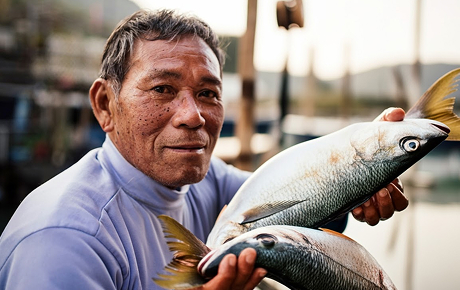Coral reefs are the rainforests of the ocean
Coral reefs only cover 1% of the ocean, yet 25% of all marine life depend on them at some point of the life cycle.
What is a coral?
Corals are the backbone of the reefs. They are amazing marine invertebrates, which means they’re animals without a backbone, related to jellyfish and sea anemones. They are all from same family called Cnidaria. Even though they often look like colorful plants swaying in the ocean, they are actually animals!
They start life as a single polyp, which measure just 1-3mm. However, as they start dividing, the start forming interconnected structures called colonies. Some coral colonies can be the size of a whole room. Most corals are slow growers, so a colony the size of a large rock may have taken decades or centuries to grow that large.
Most corals have a special partnership with tiny algae called zooxanthellae. These algae live symbiotically right inside the coral’s tissues. The zooxanthellae photosynthesize under sunlight producing sugars and oxygen, while the coral provides the zooxanthellae safe housing and whatever by-products of respiration get used up as nutrients for the zooxanthellae for photosynthesis. This partnership allows corals to grow efficiently in the clear, nutrient poor waters of most tropical reefs.
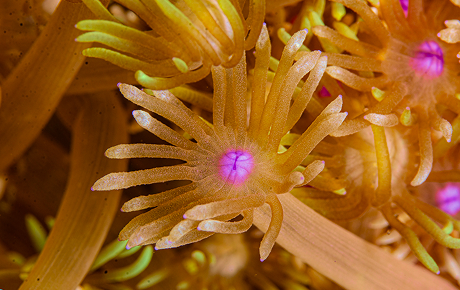
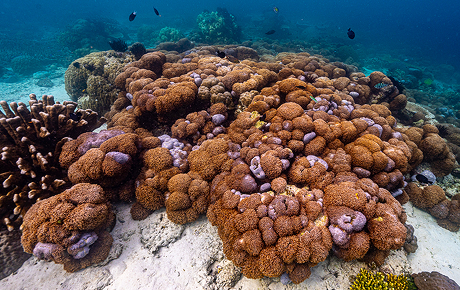
Soft vs hard corals
Corals fall into two main categories: soft and hard corals, distinguished by their skeletons. Soft corals are flexible and plant-like, lacking a rigid skeleton. They are adapted to live in surges and flex with the waves. While they add to reef biodiversity, they don’t form the main reef structure.
In contrast, hard corals, or stony corals, are the true builders of reefs. Each hard coral polyp secretes a rigid, cup-shaped skeleton of calcium carbonate. These tiny, stony cups cement together as polyps grow, accumulating over centuries to form the intricate, three-dimensional frameworks that are the very foundation of coral reefs. These hard, complex structures are incredibly important.
Their sturdy calcium carbonate skeletons create countless nooks, crannies, and crevices within the reef. These intricate hiding places are essential for many species, particularly juvenile fish and other small marine animals, offering crucial protection from predators. Without hard corals, the vast, biodiverse ecosystems we know as coral reefs wouldn’t exist, depriving countless marine species of their vital homes and nurseries.
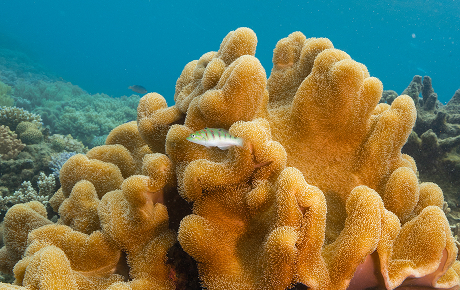
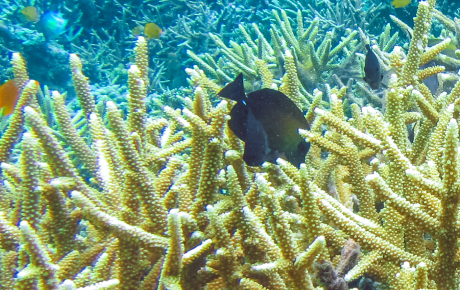
Importance of corals
Corals are vital for life both in and out of the ocean, acting as biodiversity hotspots. From the smallest invertebrates to various fish species, to larger marine animals like turtles and sharks, these vibrant reefs offer essential food sources, vital shelter from predators, and critical breeding and nursery grounds. Their complex structures support an astonishing abundance of marine life that would otherwise have no place to call home.
Beyond supporting marine life, coral reefs play a critical role in coastal protection. These natural barriers absorb up to 97% of wave energy from storms, tsunamis, and everyday waves, preventing erosion and safeguarding coastlines. For millions of people living in coastal communities, healthy reefs mean protection for their homes, infrastructure, and livelihoods, significantly reducing the impact of destructive weather events.
Finally, corals are incredibly important for human economies and well-being. They sustain vibrant fishing industries, providing food and income for hundreds of millions of people worldwide. Additionally, their breathtaking beauty makes them major tourist attractions, generating billions of dollars annually through diving, snorkeling, and other recreational activities. Reefs also hold immense potential for medical discoveries, with many compounds found in reef organisms being researched for treatments against diseases like cancer and arthritis.
As important as coral reefs are, they are currently under threat from climate change and other human factors.
